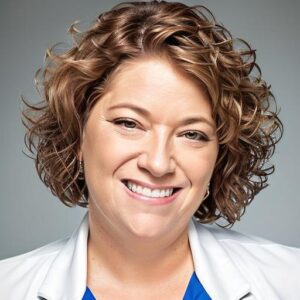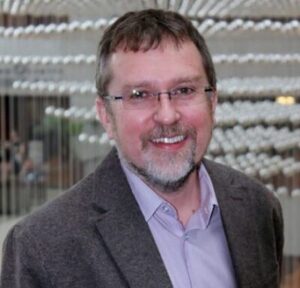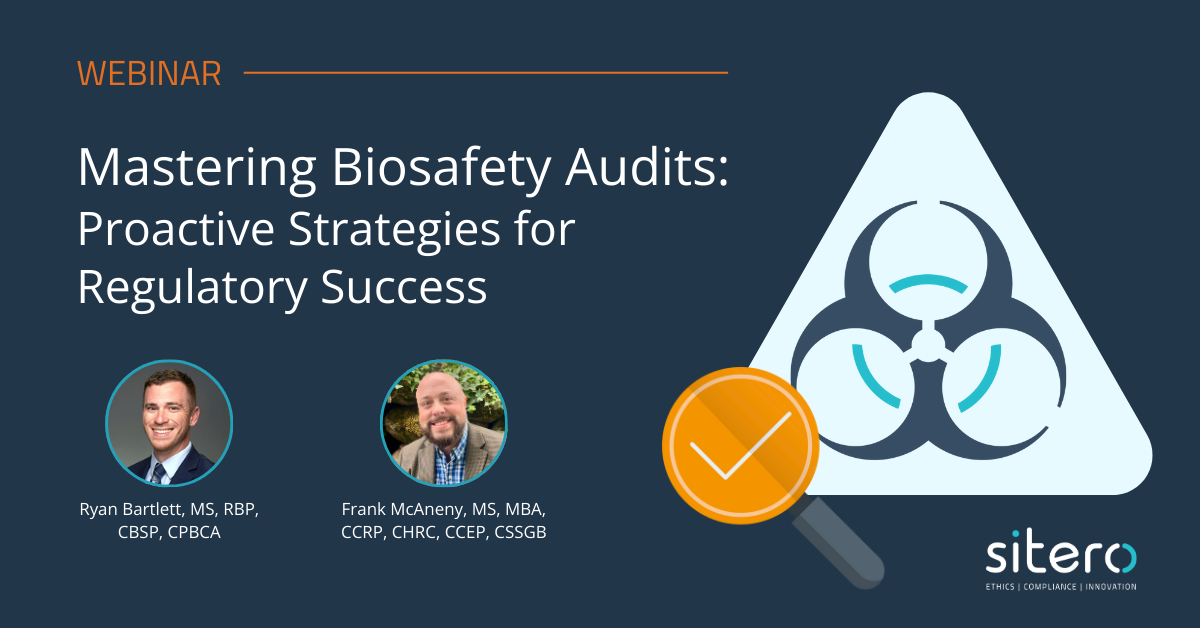
Webinar: Mastering Biosafety Risk Assessments – Best Practices & Practical Tools
Date: October 3rd, 2024 from 1:00-2:00pm ET
Presenters: Sarah Ziegler, Ph.D., SM(NRCM), RBP, CBSP, Paul Meechan, Ph.D., RBP, CBSP (ABSA), and Robert Ellis, Ph.D.
Join our expert-led webinar on biosafety risk assessments and gain an understanding of evaluating and managing biological risks. This session will cover the critical steps in performing a risk assessment, from hazard identification to evaluating control measures. We’ll explore the differences between qualitative and quantitative risk assessments and demonstrate how a robust risk assessment can enhance your biosafety program. Take away practical insights and tools to assess risks effectively, build trust with researchers, and ensure a safer research environment.
By the end of this webinar, attendees will:
- Identify the essential steps in performing a biosafety risk assessment
- Understand the differences between qualitative and quantitative risk assessments
- Learn how to evaluate control measures to mitigate biological risks
- Discover practical tools and strategies to enhance your biosafety program
About the presenters
Sarah Ziegler, Ph.D., RBP, CBSP (ABSA)
 Vice President of Research Compliance
Vice President of Research Compliance
Sarah Ziegler, Ph.D., is responsible for leading the IRB, IBC and Biosafety services at Sitero. Dr. Ziegler is an ABSA certified biosafety professional and is passionate about ensuring the safety of workers and the community during biomedical research. She has previously served as an IBC chair, Biosafety Officer and Responsible Official for multiple research institutions. She has also consulted on projects as an SME for Select Agents, Biorisk Management, facility design and Laboratory Operations. Dr. Ziegler was previously the Deputy Director of the National Bio and Agro-Defense Facility (NBAF) with the USDA where she supervised laboratory operations and Biorisk management. Dr. Ziegler received her Ph.D. from the University of Texas Medical Branch in Biomedical Science and was a Post-doctoral Fellow in the National Biosafety and Biocontainment Training Program (NBBTP).
Paul Meechan, Ph.D., RBP, CBSP (ABSA)
 Biosafety Advisory Board Member
Biosafety Advisory Board Member
Paul Meechan. Ph.D., has expertise in biosafety risk assessments, regulatory requirements, laboratory operations, design reviews of new facilities, and biosafety training management. Before retiring from the CDC, he was the Associate Director for Laboratory Science in the Office of Laboratory Science and Safety. He also served as the CDC editor for the 6th edition of the NIH/CDC manual Biosafety in Microbiological and Biomedical Laboratories. He previously worked as the Director of the CDC’s Environment, Safety, and Health Compliance Office and the Corporate Biosafety Officer at Merck and Co. Dr. Meechan holds RBP and CBSP certifications from ABSA International and has served as President and Secretary of the ABSA Council.
Robert Ellis, Ph.D.
 Emeritus Biosafety Director, and Emeritus Professor, Microbiology Immunology and Pathology at Colorado State University
Emeritus Biosafety Director, and Emeritus Professor, Microbiology Immunology and Pathology at Colorado State University
Robert Ellis, Ph.D., is a Sitero biosafety consultant and a past president of ABSA. Dr. Ellis is a Certified Biosafety Professional (ABSA) and an Honorary Diplomate of the American College of Veterinary Microbiologists. Dr. Ellis was the Director of Biosafety at Colorado State University for more than 25 years and was the Responsible Official for the CSU Select Agent program from 2002-2020. Dr. Ellis has experience conducting facility audits ranging from individual laboratories for private and public entities to comprehensive biosecurity and biosafety audits of research and clinic academic operations and veterinary medical colleges. Recently he assisted with stand-up activities of the NBAF Biorisk and Select Agent Program.
Sitero is excited to be exhibiting at SCDM EU 2025 in Brussels, Belgium on April 9-11. Learn more:
In this on-demand webinar, learn key strategies for biosafety audit readiness, avoiding common pitfalls, and addressing compliance issues. Watch here:




